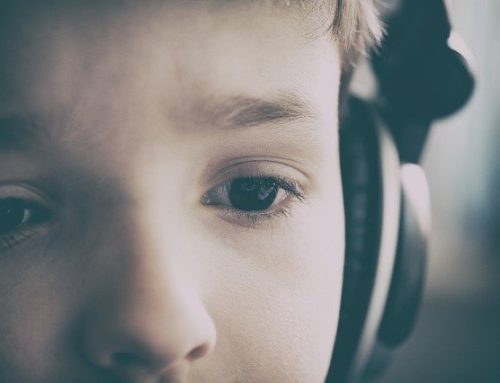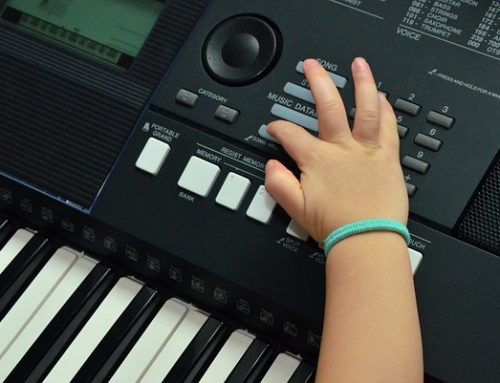Auditory Processing Disorder (APD) can present a real challenge for children since it impedes their ability to recognize and make sense of sounds.
Imagine, for example, this scenario:
The mother of a seven-year-old son notices that although she tells him numerous times to pay attention to her directions, he does not seem to get them. At the same time, her child’s teacher has also expressed their concern. The boy has poor reading and vocabulary skills and problems grasping other academic concepts, despite seeming bright otherwise.
Concerned, the mother makes an appointment with an audiologist to see if her son has a hearing impairment. To her surprise, he passes the test!
Only after some more investigating, they finally diagnose him with Auditory Processing Disorder.
The mother is perplexed. How can this be? How can her child pass a hearing test and yet have an auditory disorder?
The answer lies in the nature of the ailment.
What Exactly Is Auditory Processing Disorder?
 Most people can easily filter out unwanted sounds in the context of everyday situations. For example, we can hold a conversation without getting distracted by the airplane that may fly overhead or the dog that is barking nearby. We are aware of the presence of these things, but our focus remains on the conversation.
Most people can easily filter out unwanted sounds in the context of everyday situations. For example, we can hold a conversation without getting distracted by the airplane that may fly overhead or the dog that is barking nearby. We are aware of the presence of these things, but our focus remains on the conversation.
However, a child or adult suffering from Auditory Processing Disorder may have major problems with exactly this type of situation.
When they are in a classroom with many other children or when adults have to attend a team meeting, the various different noises in the room can make it hard for them to filter out and focus on the most important sound—the communication coming from their teacher or at work from their colleagues. For instance, for a child with APD all sounds—the teacher’s voice, the chatter of their classmates, a chair scraping the floor, or the crinkling sound of paper—are heard at the same level.
But not only that, APD can affect sound processing in various other ways, with a range of consequences. For some children and adults – this condition creates difficulties even when in a one-to-one interaction which takes place in a quiet space.
The most common issues caused by APD are:
- Difficulties processing incoming information – This includes problems interpreting, organizing, and combining auditory data on a higher level. It can impede listening comprehension, abstract reasoning, and problem-solving.
- Problems discriminating between sounds – This includes issues with distinguishing sounds of different length, strength (amplitude), and frequency. It can negatively affect reading, writing, and spelling.
- Trouble recalling acoustic signals – This refers to problems remembering what others say and hinders developing good memorization skills.
- Issues interpreting and following directions – This includes defining, understanding, and comprehending auditory information well enough to act in accordance with the directions. It relies on all aforementioned auditory skills combined.
Clearly, Auditory Processing Disorder can have a great impact on learning and attention. In fact, researchers have noted that there exists an obvious connection between APD and learning disorders, ADHD, and even dyslexia. “Neural Biomarkers for Dyslexia, ADHD, and ADD in the Auditory Cortex of Children” is a recent paper by Peter Schneider, Ph. D., and his colleagues. Dr. Schneider is a physicist and the leader of brain research lab at the University of Heidelberg in Germany. He researches processing in the primary auditory cortex in both children and adults as well as the influence of music training in musicians and nonmusicians. The findings attesting the link between ADHD/ADD, Dyslexia and APD appeared in 2016 in the journal: Frontiers of Neuroscience, 10, 324.
Though, what often confuses many is that children with APD typically do not have hearing impairments, nor are they less intelligent. The problem solely lies with the auditory processing being delayed or distorted in some way. That is especially so when there is a lot of background noise. For some children and adults – this condition creates difficulties even in a one-to-one interaction.
What can help?
Consider the benefits of a unique treatment approach—the Tomatis Method.
The Tomatis Method and Sound Stimulation – How Does It Help With APD?
Tomatis Auditory Stimulation can help advance the clarity and speed at which auditory signals are processed. In fact, this specialized treatment approach can greatly improve communication abilities, such as attention and effective listening.
How?
It is a fact that myelination is part of the physiological maturation needed for age-appropriate functioning. In 2009. I have hypothesized in a publication by Jan Gerritsen, Ph.D., summarizing the research findings of the Tomatis Method, that sound stimulation via the Tomatis Method helps with the formation of an insulating layer that coats certain nerve cells carrying electrical signals. This layer is crucial for the speed at which the brain relays messages. With its help, the autonomic nervous system—regulating the body’s unconscious actions—can function properly and spur on the processing of auditory signals.
In addition, auditory stimulation also results in a more balanced interaction between various different sensory systems.
Various studies have investigated the effects the Tomatis Method and auditory stimulation can have on auditory processing. The research gathered shows that this treatment method is a powerful way to address learning disabilities. It does this by helping children better comprehend, remember, and carry out spoken directions.
Oftentimes, we use the Tomatis Method in conjunction with other forms of treatment. For instance, when used to treat learning disabilities, Tomatis Auditory Stimulation can be complemented well by other approaches. These can include biomedical, modifications of the environment, and tutoring or, if needed, speech or behavioral interventions.
Hence, a comprehensive approach and treatment plan that includes the Tomatis Method can make an enormous difference in the life of an afflicted child.
But it is not just about improving academic or work performance.
Auditory Processing Disorder can make a child or adult feel disconnected from society. In a real sense, it cuts them off from interactions with family, peers and colleagues.
To see the benefits and the difference the right therapy can make in such a child’s life is amazing and encouraging, both for providers and parents/family alike.





